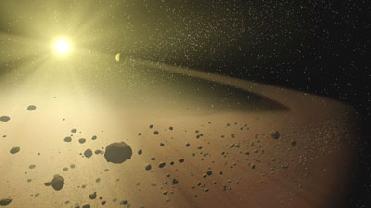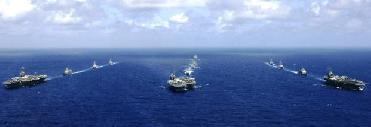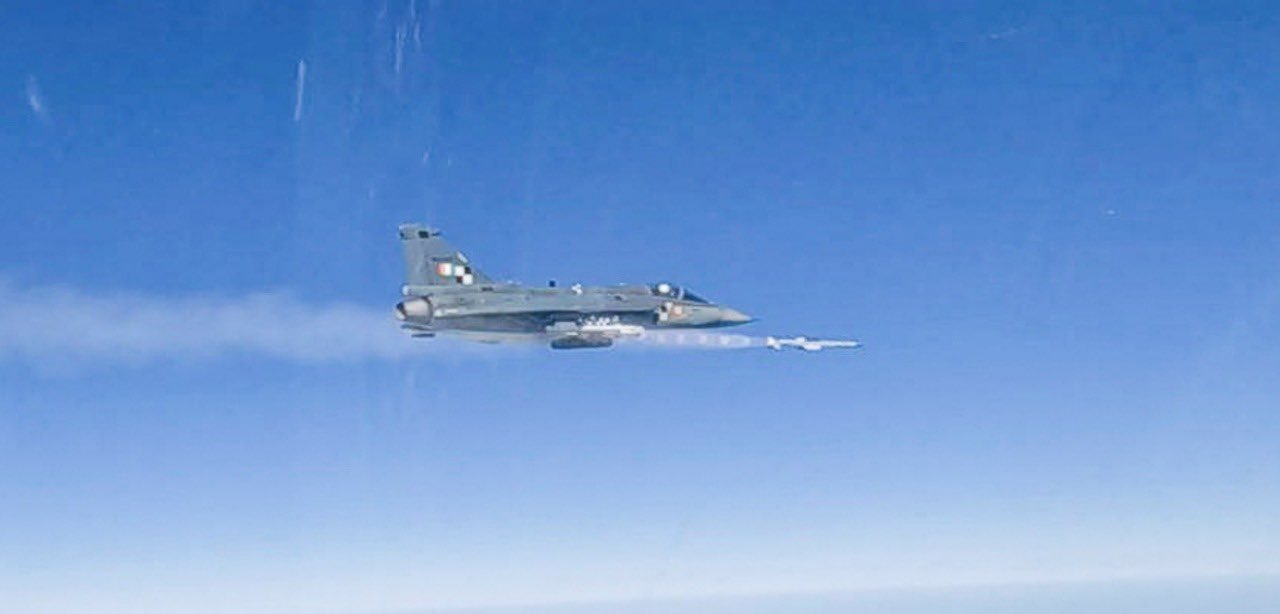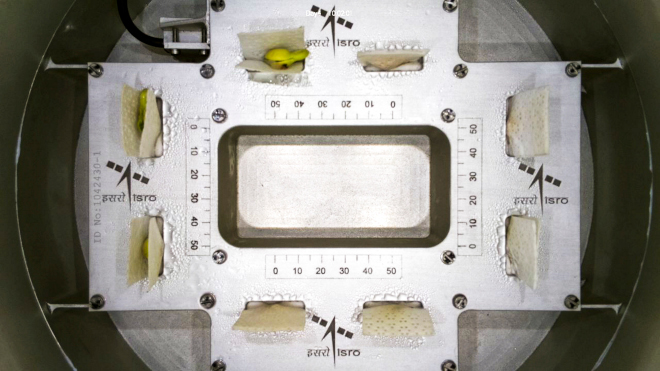
In this artist's concept, a narrow asteroid belt filled with rocks and dusty debris orbits a star similar to our own sun. Photo: NASA/JPL-Caltech
PARIS (AFP): Astronomers have for the first time detected ice and organic compounds on an asteroid, a pair of landmark studies released said on Thursday.
The discovery bolsters the theory that comets and asteroids crashing into Earth nearly four billion years ago seeded the planet with water and carbon-based molecules, both essential ingredients for life.
Working separately, two teams of scientists using NASA's Infrared Telescope Facility in Hawaii found that the 24 Themis, which orbits the Sun between Mars and Jupiter, is literally covered in a thin coating of frost.
It had long been suspected that the massive space rocks that bombarded our planet after the formation of the solar system contained frozen water, but the two studies, published in Nature, provide the first hard evidence.
Still, a mystery remained: How could frozen water persist over billions of years on an asteroid hot enough to vapourise surface ice?
Only if that layer of frost were continually replenished by the slow release of water vapour released from ice in the asteroid's interior, the researchers reasoned.
In other words, 24 Themis -- some 200 kilometres (125 miles) in diameter -- almost certainly contains far more water locked in its minerals than anyone suspected.
 Previous Article
Previous Article Next Article
Next Article











The Indian Air Force, in its flight trials evaluation report submitted before the Defence Ministry l..
view articleAn insight into the Medium Multi-Role Combat Aircraft competition...
view articleSky enthusiasts can now spot the International Space Station (ISS) commanded by Indian-American astr..
view article